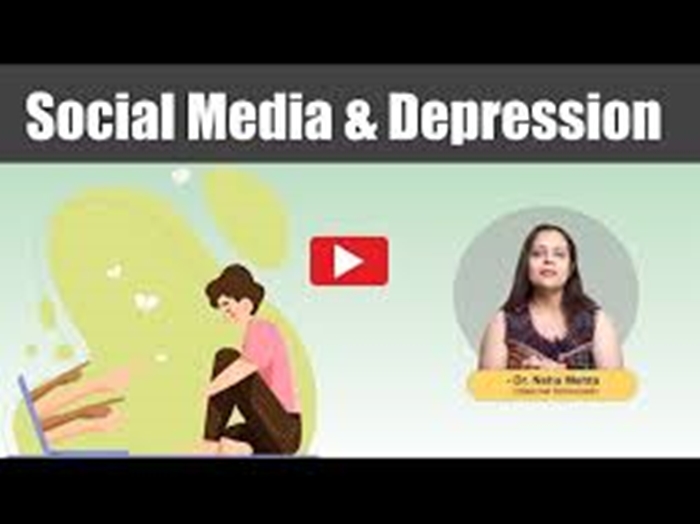In this article, we discussed the meaning of social networking and depression, we also talked about how social networking cause depression.
Definition
Social networking and depression are linked in a complex and controversial way. Some studies suggest that extended use of social media is associated with depression, while others have found the opposite.
Depression is a mood disorder that leads to low mood and symptoms that affect various aspects of an individual’s daily life, such as their sleep, appetite, and employment.
People may sometimes refer to depression as major depressive disorder or clinical depression.
The symptoms of depression include Trusted Source:
- feeling hopeless or pessimistic
- feeling irritable, frustrated, or restless
- feeling guilty, worthless, or helpless
- reduced interest and enjoyment in hobbies and activities
- impaired concentration, memory, or decision-making
low energy or fatigue
- appetite or weight changes
- sleep issues
thoughts of death or suicide, attempts
Some people may also experience painful physical symptoms, such as aches, cramps, and digestive concerns, that have no clear cause and do not respond to treatment. However, this is not among the diagnostic criteria for the condition.
Here are some ways social media may be cause depression:
Recent research points to the connection between social media use and well-being, particularly when the use is excessive. For some people, popular social media platforms such as Facebook, TikTok, and Instagram have an association with certain mental health conditions, including depression.
However, more in-depth research is required, as many studies have limitations. These include a lack of causality, self-reported data, and small sample sizes.
Sleep deprivation
Social media use may contribute to sleep issues, including insomnia, reduced sleep quality, and shortened sleep duration.
Research Trusted Source from 2022 suggests a positive association between insomnia and compulsive, pathological, and problematic social media use. Insomnia may negatively affect well-being, increasing the risk of mental health conditions such as depression and anxiety.
Loneliness
Although social media may increase virtual connectivity among individuals, it is also associated with loneliness because increased use may result in fewer in-person interactions.
Anxiety
A 2022 study found that people who took a 1-week social media break noted significant improvements in depression, anxiety, and well-being. More long-term research is necessary to build on these findings.
cyberbullying
social pressure and comparison
addictive patterns
fewer in-person interactions
the contagion effect of suicide, in which people viewing certain behaviors on social media may start to see them as a viable option
Safely Using Social Media
Using social media comes with mental health risks, but that doesn’t mean it should be completely avoided. Experts recommend using these networking websites in moderation.
Set a timer when you’re on social media or install an app on your phone or computer that tracks how long you’ve spent on a networking site.
Without these timers or apps, it’s easy to spend hours on social media before you know it. To limit your time on social media, you can also plan real-world activities that help you focus on your immediate surroundings and circumstances. Read a book, watch a movie, go for a stroll, play a game, bake some bread, or have a phone conversation with a friend. Make the time to enjoy life offline.
Several practices may help a person use media more safely:
- Maintaining privacy: People should avoid sharing personal information, making their location known, and adding strangers as contacts. They can adjust the privacy settings to suit their requirements.
- Setting limits: A timer or app can help people monitor their use. They can then remove time-consuming apps from their devices and use an app or browser extension to block distracting websites.
- Restricting use: A person can decide to complete all of their important tasks before using social media. They can also avoid using it at certain times of the day.
- Taking a break: A social media break involves completely abstaining from social media use for a set time.
How to minimize negative effects of social media use
Steps you can take to ensure healthy social media use:
Focus on balance: Make sure your kids are also engaging in social interaction offline, and have time for activities that help build identity and self-confidence.
Turn off notifications: App developers are getting more and more aggressive with notifications to lure users to interrupt whatever they’re doing to engage constantly with their phones. Don’t let them.
Look out for girls at higher risk of depression: Monitor girls who are going through a particularly tough time or are under unusual stress. Negative effects of social media can have more impact when confidence is down.
Teach mindful use of social media: Encourage teenagers to be honest with themselves about how time spent on social media makes them feel, and disengage from interactions that increase stress or unhappiness.
Model restraint and balance in your own media diet: Set an example by disengaging from media to spend quality family time together, including phone-free dinners and other activities. Kids may resist, but they’ll feel the benefits.
Phone-free time before sleep: Enforce a policy of no smartphones in the bedroom after a specific time and overnight. Use an old-fashioned alarm clock to wake up.
Conclusion
Social media is useful for people to communicate, access information, and receive social support. However, research has shown that it can negatively affect mental health, linking it to depression, anxiety, and sleep concerns. Using social media comes with mental health risks, but that doesn’t mean it should be completely avoided. Experts recommend using these networking websites in moderation


